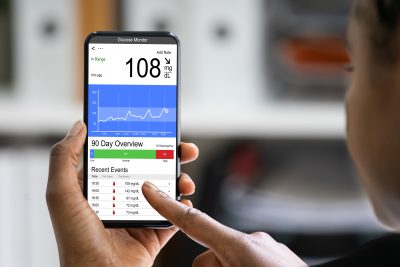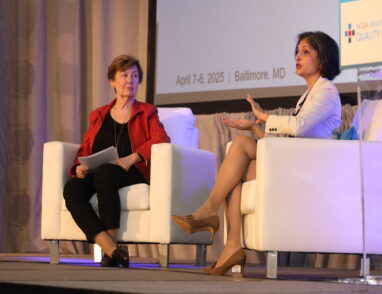NCQA Resets Diabetes Programs, Strengthens Accountability
March 15, 2022 · Matt Brock
Following the recommendations of a team of experts at the Digital Quality Summit, NCQA has set the course for an overhaul of its Diabetes Recognition Program. We’ve also begun work to develop new diabetes measures that align with evolving data collection and technology. All of these efforts have been generously funded by a $3.5 million grant from The Leona M. and Harry B. Helmsley Charitable Trust.
NCQA’s Diabetes Program evaluates and recognizes clinicians and group practices that deliver a higher standard of diabetes care.
Experts Recommend Renewed Diabetes Focus

Advances in diagnostic and treatment technology, evolving clinical practices, and a continued effort to encourage primary care participation led NCQA to revisit the program’s structure and standards. It gathered a collective of diabetes and quality measurement experts at the annual Digital Quality Summit to assess the program and make recommendations for an upgrade. Their collective expertise led to the white paper: Rethinking Diabetes in the Digital Age. The paper, also funded by The Helmsley Charitable Trust, now serves as a blueprint for the updates.
Planned changes include:
- Updates to NCQA’s Diabetes Recognition Program measure set.
- Modernized program infrastructure to allow for digital measure adoption.
- New measure development exploring one to focus on the behavioral health component of diabetes care and another that embraces advancing glucose monitoring technology.
All of these updates aim to strengthen the clinician accountability structure—the program’s standards and quality measurement—to improve outcomes among patients with diabetes. Updates mean value-added for clinicians and practice sites, state-managed care programs, payers, and the broader quality measurement community.
“We hope this refresh attracts more clinicians to the Diabetes Recognition Program approach,” said Peggy O’Kane, NCQA President. “It builds stronger standardized accountability structures to improve diabetes health outcomes while also easing the reporting burden for clinicians. Even more, it significantly accelerates innovation in diabetes measure development.”
Patient Input and Glucose Monitoring Prompt Changes
That includes a significant focus on the use of information that comes directly from the patient. The Glucose Management measure concept would include data gathered from personal glucose monitoring devices to provide a more accurate understanding of blood sugar levels over time. The Diabetes Distress measure concept focuses on the mental health and well-being of people with diabetes by collecting patients’ perspectives with the use of the Diabetes Distress Scale.
“A major goal at Helmsley is to find partners who have bold ideas to improve care delivery for people living with diabetes,” said Laurel Koester, MPH, Program Officer for the Helmsley Charitable Trust’s Type 1 Diabetes Program. “NCQA will help make a new era of diabetes care possible through a Diabetes Recognition Program that accounts for advancements in glucose monitoring technology and considers the emotional impact of diabetes.”
Currently, more than 4,000 clinicians have earned Diabetes Recognition. The Recognized status lasts for three years and is highlighted on NCQA’s publicly available Report Card.







